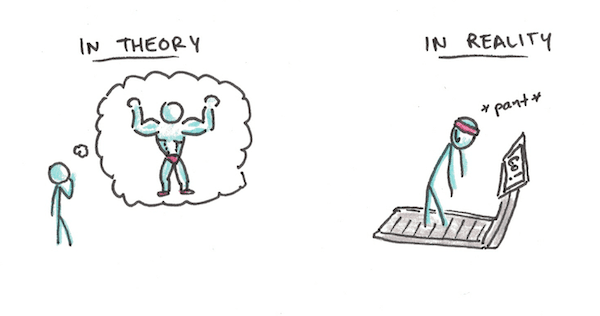Daydreams and Reality
We have two characteristic modes of viewing things—an abstract (or far-mode) and a concrete (or near-mode) view.
Because of the two modes, many big goals have a far-near incompatibility that can make it difficult to take action on. The person who dreams up the goal is different from the one who executes it.
1.89K
7.77K reads
CURATED FROM
IDEAS CURATED BY
The idea is part of this collection:
Learn more about personaldevelopment with this collection
How to handle and learn from mistakes
The benefits of psychological safety in a workplace
The importance of empathy and active listening
Related collections
Similar ideas to Daydreams and Reality
Difference between Habits and Goals
- Goal is an end-point. Habit is a daily persistent action.
They each require different forms of action, like being fluent in a new language in six months is a goal, but practicing 30 minutes each day is a habit.
- Habits influence our automatic b...
Ask Questions And Listen
When you're having an argument, there are two different views involved, and maybe two different realities. Instead of making it a black and white, right or wrong argument, try to ask genuine questions to help you understand what the other person is thinking.
Calm down, create mental spa...
Security goals and Growth goals
Goals are grouped into two main clusters:
- Security Goals: Have well-respected opinions, have many fine things, be admired by others, be well-known to many, be financially successful, find a good, high-paying job.
- Growth Goals: help those who...
Read & Learn
20x Faster
without
deepstash
with
deepstash
with
deepstash
Personalized microlearning
—
100+ Learning Journeys
—
Access to 200,000+ ideas
—
Access to the mobile app
—
Unlimited idea saving
—
—
Unlimited history
—
—
Unlimited listening to ideas
—
—
Downloading & offline access
—
—
Supercharge your mind with one idea per day
Enter your email and spend 1 minute every day to learn something new.
I agree to receive email updates

